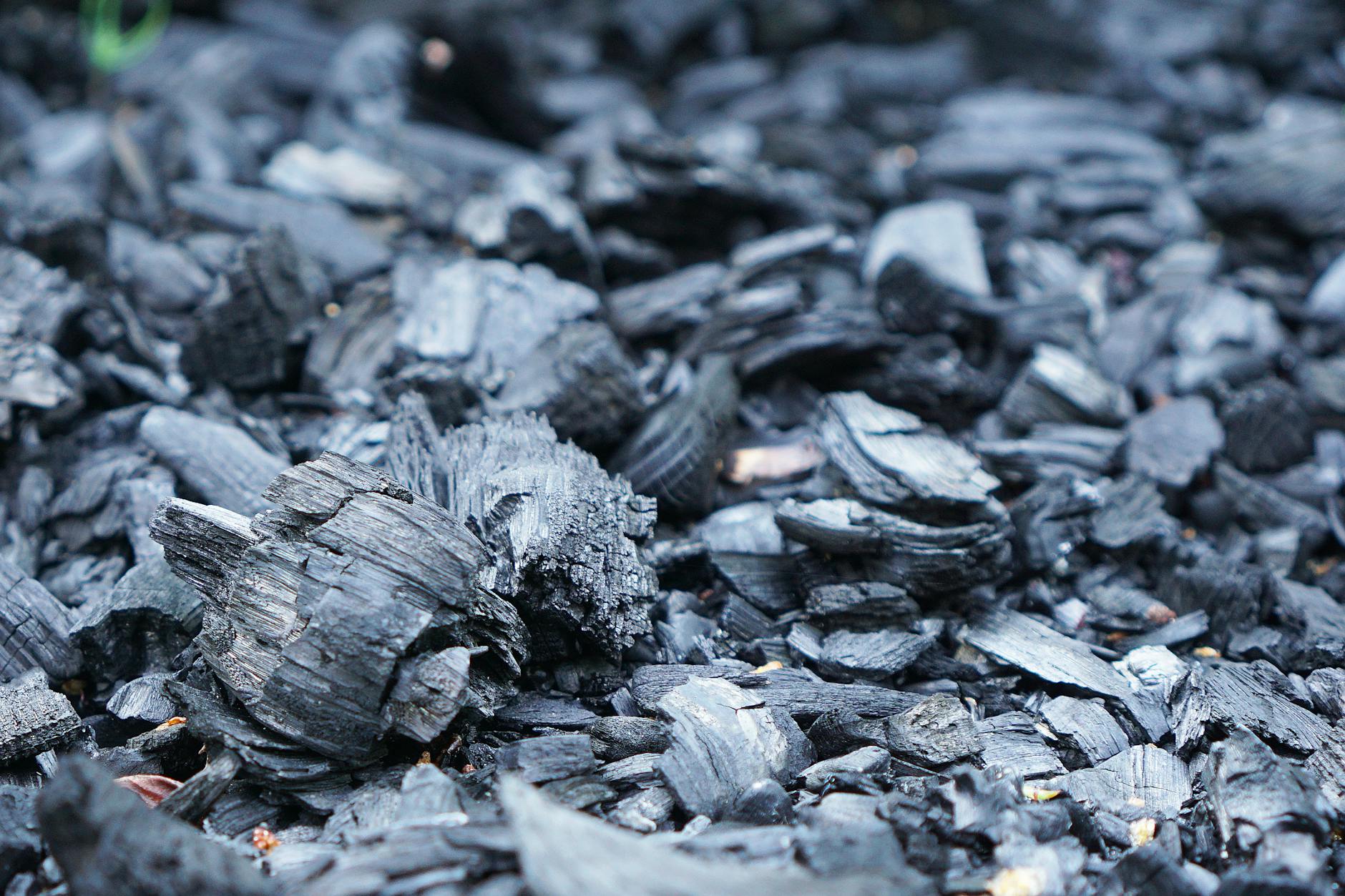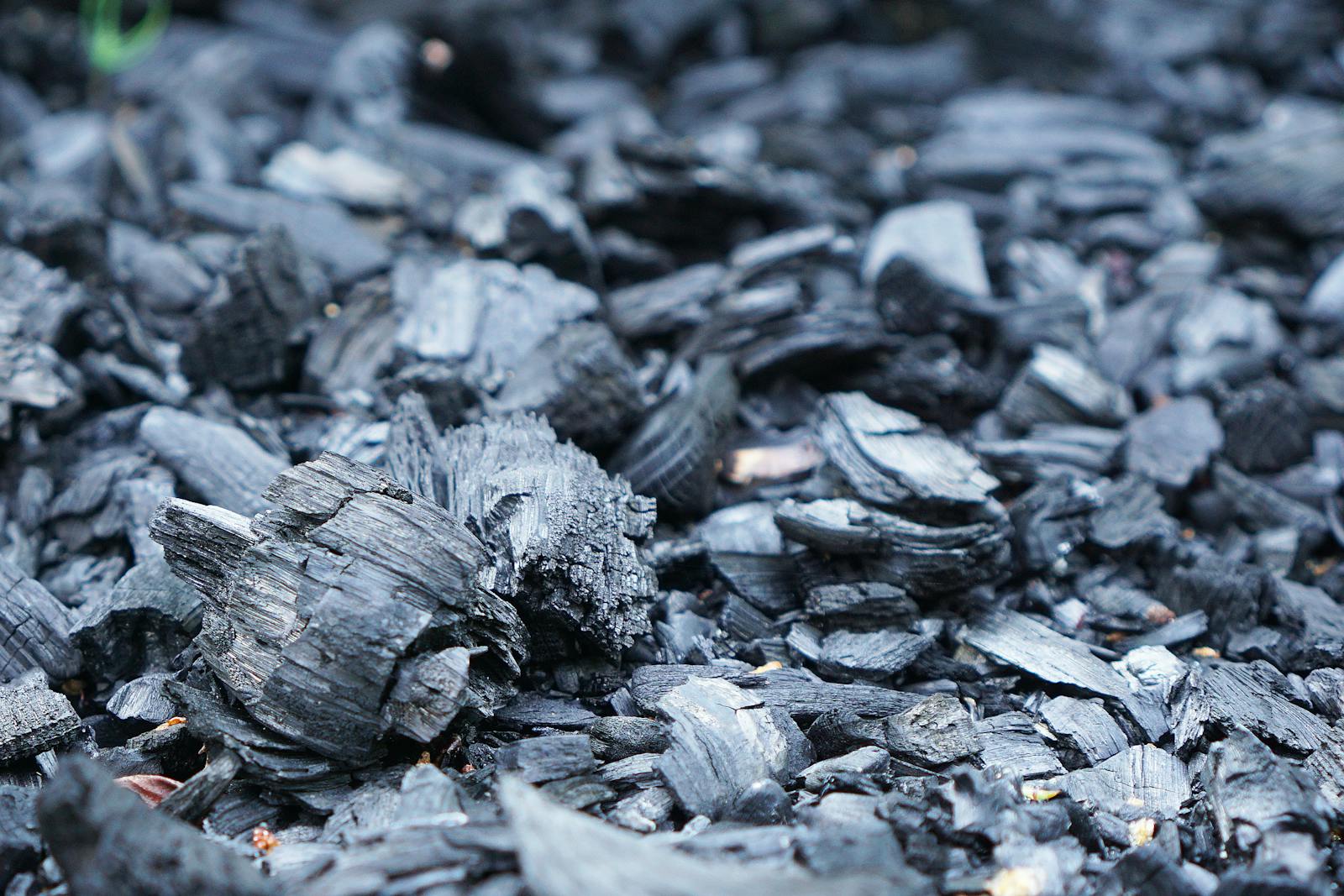Simple Tips for Greener, Healthier Composting
Welcome! Composting is the simplest way to turn kitchen scraps and garden waste into rich, healthy soil for your plants.
When you compost, you help keep food out of landfills, cut down on trash, and give your garden something it truly loves.
It all comes down to using natural materials—like veggie peels or garden clippings—and letting nature do its thing, whether you choose a basic pile, a compost tumbler, or even try your hand at vermicomposting with worms.
So, what is composting and why does it matter? Composting breaks down waste into a dark, crumbly mix that’s packed with nutrients.
It’s good for your garden, your wallet, and the planet. From tumblers that make mixing easy to vermicomposting bins packed with helpful worms, there are plenty of simple ways to get started.
In this guide, we’ll explore how using biochar in compost gives your pile a power boost, helping it stay airy, absorb odors, and speed up the whole process.
Curious about keeping your compost sweet-smelling?
You’ll want to explore these tips for odorless compost, especially when adding new materials like biochar.
Ready to learn how a few simple changes can make a real difference in your composting routine? Let’s dig in.
And if you’re just starting out, remember there are lots of ways to begin—each one great for recycling at home and making the earth a little greener.
What is Biochar and Why Add It to Compost?
Using biochar in compost can feel a bit like discovering a hidden superpower for your garden. This simple material, though it looks like black powder or chunky pieces of charcoal, has a remarkable ability to improve your compost pile in surprising ways.
If you’re passionate about making the most out of your kitchen scraps, yard clippings, or even want to speed up vermicomposting or that trusty compost tumbler, biochar might just be the ingredient you’ve been missing.
Let’s dig into what makes biochar so special, and why adding it to your compost is a clever move for anyone wanting rich, healthy soil and a greener world.
 Photo by Greta Hoffman
Photo by Greta Hoffman
What is Biochar?
Biochar is a type of charcoal made by burning wood, crop waste, or other natural materials in a low-oxygen setting.
This controlled, oxygen-poor process is called pyrolysis (a fancy word for burning without much air). Unlike backyard ash, biochar’s unique structure helps it act like a sponge for nutrients and water.
It’s been used for thousands of years, even by ancient farmers in the Amazon.
Today, gardeners and composters love it for its ability to help soil hold onto water and create happy spaces for helpful microbes.
In short:
- Biochar is a pure, carbon-rich form of charcoal.
- It’s made from natural stuff like branches, nutshells, or sawdust.
- Biochar’s porous structure means it’s full of tiny holes—think of it as “condos” for soil microbes!
Why Add Biochar to Compost?
Adding biochar to compost gives you benefits that regular composting alone can’t match. Here’s a quick look at why it’s so valuable:
- Faster Composting: The tiny pockets in biochar offer plenty of room for bacteria and fungi. These hard workers break down scraps quicker, so you get finished compost sooner.
- Improved Nutrient Retention: Biochar soaks up and holds nutrients that might otherwise wash away. When you add your finished compost to the garden, more goodness sticks around for your plants.
- Better Moisture Control: Think of biochar as a natural sponge. It helps your compost (and eventually, your soil) hold water longer, which is great for plants during a dry spell.
- Reduces Odors: Worried about stinky compost? Biochar absorbs smelly compounds, helping to keep your pile fresh. For more tips on this, you can find great advice in the guide to eliminating compost odors.
- Cleaner, Healthier Compost: Its structure traps bad stuff, from excess acidity to some heavy metals, while making life easier for the good microbes.
Want more details on these benefits?
The International Biochar Initiative’s composting primer takes a deeper look at these gains, especially when biochar is mixed into all sorts of compost, including bins, piles, tumblers, or even worm setups.
Composting, Compost Tumblers, and Vermicomposting: Biochar’s Perfect Match
Biochar fits naturally into any compost system.
Whether you maintain a basic backyard pile, turn a compost tumbler, or enjoy vermicomposting with worms, adding a scoop of biochar blends right in.
- With a traditional pile: Sprinkle in biochar each time you add kitchen scraps or yard waste.
- In a compost tumbler: Mix a small handful alongside green and brown materials. This boosts aeration, so you don’t have to turn it as often.
- For vermicomposting: Worms love biochar because it keeps conditions moist and airy without becoming soggy.
If you’re just getting started, check out these home composting tips for beginners.
They’ll help you set up a strong foundation—and biochar can give that extra boost once you’re ready.
The Science: How Biochar Transforms Your Pile
When biochar is mixed into compost, it works like a magnet and a sponge combined. Research shows that it:
- Traps nutrients released as food and leaves break down.
- Encourages the growth of good bacteria and earthworms.
- Lowers greenhouse gases like methane, making composting cleaner for the planet.
For a closer look at the science and to see how it could fit your garden, you might enjoy reading this fact sheet on biochar in compost.
Curious about different ways to compost—biochar included? Swing by this guide on six popular composting methods to find the style that’s right for you.
With biochar on your side, using biochar in compost helps turn good compost into amazing compost, giving your soil everything it needs to shine.
How to Use Biochar in Your Compost Pile or Bin
Adding biochar to your compost routine is one of the simplest changes you can make for healthier, more effective compost—no matter which setup you use.
Biochar boosts aeration, holds onto nutrients, and helps your compost stay sweet-smelling.
Here’s how to get the best out of using biochar in compost, whether you’re working with a tumbler or a worm bin.
Biochar in a Compost Tumbler: Practical Advice and Tips
If you love the clean, easy turning of a compost tumbler, you’ll be happy to know biochar is a perfect match.
Tumbler bins often need a bit of help with extra airflow, especially when packed full of kitchen scraps. Here’s how biochar can help and what to do:
 Photo by Iqbal farooz
Photo by Iqbal farooz
Why does biochar work so well in a compost tumbler?
- Boosts Airflow: Biochar’s chunky pieces help keep materials from clumping. This makes tumbling easier and helps your compost breathe, so it doesn’t turn soggy or smelly.
- Speeds Up Decomposition: The nooks and crannies in biochar become home to billions of microbes. This helps break down compost materials fast, even in the closed space of a tumbler.
- Soaks Up Odors: Worried about a whiff when you open the lid? Biochar acts like a filter, trapping smells and excess moisture.
Tips for Using Biochar in Your Compost Tumbler:
- Add a handful of biochar for every bucket of food scraps or greens you toss in.
- Sprinkle biochar as you add new materials to get an even mix.
- Turn the tumbler every few days to help biochar get well distributed.
- If your compost looks too wet, add extra biochar to absorb the moisture.
- For best results, use biochar with both green materials (like veggie peels) and browns (shredded leaves or cardboard).
Are you new to tumblers or looking for a smart upgrade?
Explore these Compost Tumbler Options to find a bin that matches your backyard and lifestyle.
Adding biochar can work wonders in tumblers, but be patient.
Like most good things in composting, steady progress beats rushing.
Biochar and Vermicomposting: Worm Bin Success
If you’re composting with worms, biochar brings big advantages—just on a smaller scale.
Worms thrive in comfortable and stable conditions, and biochar makes their environment even better.
Why Worms Love Biochar:
- Biochar helps maintain moisture, so worm bins don’t dry out or get slimy.
- The gritty texture gives worms just the right surface to crawl through, helping their digestion.
- Biochar boosts microbe growth, which turns scraps into rich, worm-made compost even faster.
How to Use Biochar in a Worm Bin:
- Start small. Mix a thin layer (about a tablespoon per quarter of the bin) into new or existing bedding. Too much can dry things out, so go slow at first.
- Always moisten the biochar before adding it. Dry biochar could irritate worm skin.
- Mix gently so worms can explore at their own pace.
A word of caution: Avoid adding large chunks at once.
Finely crushed or granular biochar blends better in worm bedding. Monitor moisture and see how your worms react—happy, active worms mean you’re on the right track!
If you’re interested in more ideas for composting with kitchen scraps or want to avoid tossing usable waste, check out these creative Don’t Toss It Tips.
Making the most out of your food waste is great for your worms and your garden.
Adding biochar helps every part of your composting journey, whether you use a tumbler, a pile, or a wriggling worm bin.
Little by little, you’ll notice richer compost, happier soil, and less waste headed to the curb.
Top Tips for Even Better Compost with Biochar
Ready to take composting up a notch? Using biochar in compost can give your pile a powerhouse advantage, whether you’re working with a basic bin, a compost tumbler, or practicing vermicomposting.
With just a few simple steps, you can unlock even more benefits—think fluffier compost, less odor, and nutrients your plants will love.
These top tips make it easy to get great results at home without fuss or confusion. Let’s dig in!
 Photo by Pixabay
Photo by Pixabay
Pre-Charge Your Biochar for Best Results
Biochar acts like a blank sponge—it’s ready to grab onto nutrients, but it works best if you give it a head start.
Instead of tossing dry biochar directly into your compost, “pre-charge” it with compost tea, worm juice, or simply soak it in water mixed with a little kitchen scrap juice.
This helps fill all those microscopic nooks so they’ll be ready to support helpful microbes and hold onto nutrients.
- Mix biochar with liquid from your compost pile (or even a bit of worm bin runoff).
- Let it soak for a few hours or overnight.
- Add the moist, charged biochar to your compost and mix well.
Experts suggest that pre-charging can make a real difference in the speed and nutrient quality of your finished compost.
For step-by-step advice, you can check this clear practice guideline on using biochar in compost.
Mix in Moderation: How Much Biochar Is Just Right?
A little biochar goes a long way. While it’s tempting to add heaping shovelfuls, research and experience show that 5-10% biochar by volume is usually the sweet spot.
This gives you fluffy compost and supercharged microbes without drying out your mix.
- If you’re using a compost tumbler, toss in a handful for every bucket of new scraps.
- For vermicomposting, start with a tablespoon per corner of your worm bin.
- Try not to overwhelm your compost—biochar works best as a helper, not the main event!
Want to track how much you’re adding through the year?
The composting calendar offers helpful seasonal tips so you can make small, smart changes month by month.
Keep Biochar Mixed for Even Action
Biochar needs to mingle with both greens (like fruit peels) and browns (like shredded paper or fallen leaves).
This helps distribute its moisture-holding and nutrient-catching powers evenly across your whole compost pile.
- Add biochar in thin layers or mix it as you add new materials.
- Turn your pile or crank your tumbler every few days so biochar touches all parts of your compost.
- With worm bins, gently stir once in a while—worms will do most of the work for you.
Regular mixing stops biochar from clumping up in one spot and makes sure every part of your compost benefits.
Curious about other composting tricks? These six ways to compost at home show how easy it is to adjust your system.
Watch Moisture and Smell—Biochar Helps!
Biochar is like a natural deodorizer and moisture manager in one. If your compost feels soggy or develops a sour scent, biochar can help.
But if things seem dry, add a splash of water or some fresh, moist scraps.
- Check that compost feels like a wrung-out sponge—barely damp, not dripping.
- Add a sprinkle of biochar at the first sign of smell or slime.
- Adjust your greens and browns as needed for a balanced, healthy compost pile.
For more on odor control—even when using biochar—these odor-busting compost tips are a lifesaver for any home composter.
Every compost system is a little different.
Some people find great results by blending biochar into finished compost, others swear by adding it early to every new layer.
Try out small batches and see what your pile (and your garden) likes best.
- Start slow—jot down changes in your composting notebook.
- Join online groups or share your own experiences with friends.
- Need specific advice? Visit the Compst Charm FAQ for friendly, quick answers anytime.
People all over the world experiment with using biochar in compost, and there’s lots to learn from others’ successes and mistakes.
For some outside perspective and new ideas, you might enjoy this discussion on adding biochar to compost.
Quick Tips at a Glance
Here’s a simple checklist that helps when using biochar for composting success:
- Pre-charge biochar before adding it in.
- Aim for 5-10% biochar by volume for best results.
- Mix it in well with your greens and browns.
- Keep compost moist, not wet.
- Use more biochar if things get smelly or slimy.
- Try small changes and track what works for you.
Using biochar in compost is a friendly upgrade for any system—compost tumbler, worm bin, or classic pile. The result? Richer, cleaner, and more reliable compost for your garden!
Conclusion
Using biochar in compost adds a boost to any compost pile, bin, or worm bin. Biochar creates spaces for good microbes, soaks up nutrients, stops bad smells, and keeps compost moist.
Whether you use a compost tumbler or love vermicomposting, adding biochar makes home composting easier and more rewarding.
A little goes a long way—just a small amount mixed with kitchen scraps and garden waste can make your compost lighter, fluffier, and better at feeding your plants.
Start with small changes, watch your pile, and enjoy the process. Each compost heap is unique, and your routine will quickly become second nature.
For anyone beginning their compost journey or eager to get the most out of their effort, explore more about starting composting at home.
Composting is a great step toward living greener and cutting waste for good.
Your garden, worms, and the environment will thank you.
And if a tricky question pops up as you try these tips, the composting FAQ bot is always on hand to help.
Keep having fun and exploring new ways to make your home and garden more sustainable.
Quick FAQ: Using Biochar in Compost
How much biochar should I add to my compost?
Aim for 5–10% biochar by volume in your compost pile, tumbler, or worm bin. That’s usually a handful or two with each new bucket of scraps.
Can I put dry biochar straight into the compost?
You can, but it works even better if you moisten or “pre-charge” it first. This helps the biochar start working right away.
Will biochar help if my compost smells bad?
Yes, biochar is a great odor-fighter! It absorbs smelly compounds and helps balance moisture in your compost.
Is biochar safe for worms in vermicomposting?
Yes! Worms enjoy crawling through biochar when it’s mixed gently and isn’t too dry or chunky.
Where can I get more help with tricky compost questions?
The composting FAQ bot and advice page offers friendly, instant answers for all your composting, vermicomposting, and compost tumbler questions.
Keep experimenting and sharing your composting wins. For more creative ideas on reusing kitchen scraps and home waste, explore the practical Don’t Toss It Campaign—your next compost upgrade might be in your rubbish bin!
Composting is a journey, and every effort helps build a healthier, more sustainable world.





